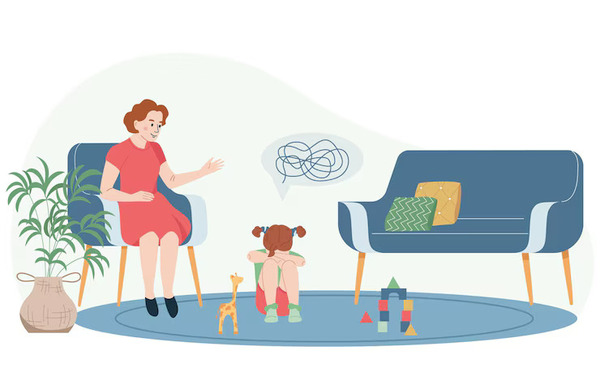Notifications
ALL BUSINESS
COMIDA
DIRECTORIES
ENTERTAINMENT
FINER THINGS
HEALTH
MARKETPLACE
MEMBER's ONLY
MONEY MATTER$
MOTIVATIONAL
NEWS & WEATHER
TECHNOLOGIA
TV NETWORKS
VIDEOS
VOTE USA 2026/2028
INVESTOR RELATIONS
DEV FOR 2025 / 2026
ALL BUSINESS
COMIDA
DIRECTORIES
ENTERTAINMENT
FINER THINGS
HEALTH
MARKETPLACE
MEMBER's ONLY
MONEY MATTER$
MOTIVATIONAL
NEWS & WEATHER
TECHNOLOGIA
TV NETWORKS
VIDEOS
VOTE USA 2026/2028
INVESTOR RELATIONS
DEV FOR 2025 / 2026
 Arnav Arora -
Wed at 7:08 AM -
Health -
#adhdtherapy
#adhdtreatment
-
30 views -
0 Comments -
1 Like -
0 Reviews
Arnav Arora -
Wed at 7:08 AM -
Health -
#adhdtherapy
#adhdtreatment
-
30 views -
0 Comments -
1 Like -
0 Reviews

Attention-Deficit/Hyperactivity Disorder (ADHD) has historically been seen as something that happens to children only. Hyperactive, inattentive children sitting in classrooms have been the public face of ADHD for decades. But science and everyday life paint a much larger picture—one that goes far beyond the age of childhood. So is ADHD merely a passing phase that kids grow out of, or is it a lifelong mental health issue?
The majority of ADHD diagnoses occur in early childhood, around the start of school. The organisation of school settings—prolonged periods of sitting quietly, focusing, and obeying rules—tends to exacerbate the behaviours characteristic of ADHD: lack of concentration, impulsivity, and hyperactivity.
Parents and teachers might initially observe these behaviours as a child struggles to keep up academically or socially. Early treatment of ADHD at this stage might consist of behavioural interventions, parent training, and medication in certain instances.
Most people think children "grow out of it" as they get older, but that isn't necessarily the case. Hyperactivity can slow down with age, but problems with attention, impulsivity, and executive function tend to stick around. In fact, studies indicate that more than 60% of children with ADHD continue to suffer from symptoms into adulthood.
Children with ADHD typically face different problems than adults. Some of these may include:
Since adult symptoms are internalised or misinterpreted, ADHD often remains undiagnosed in adults, particularly in females. They often remain undiagnosed until later in life, sometimes when their children are diagnosed, which gives them an opportunity for reflection.
ADHD is not a phase—it's a neurodevelopmental disorder affecting brain function involving attention, motivation, and impulse control. Although the symptoms may evolve over time and with experience, the neurological underpinnings do not just vanish.
That’s why effective, ongoing ADHD therapy is important. Therapy can help people of all ages develop coping strategies, manage symptoms, and improve daily functioning. It's also crucial in addressing the emotional toll ADHD can take—such as anxiety, depression, and a sense of failure that often comes with years of struggling silently.
Treating ADHD is not a one-time thing. The best treatment plan is generally a well-rounded combination of medication, behavioural techniques, lifestyle modifications, and professional therapy. Let's address the above:
1. Behavioral Therapy
For kids, behavioural therapy typically includes instructing parents and children with ADHD on strategies to cope with disruptive conduct. For adults, therapy includes goal-setting, time management, organisational skills, and control of emotions.
2. Cognitive Behavioral Therapy (CBT)
People with ADHD can identify harmful thought patterns and learn more constructive responses with CBT. It is especially helpful for adults with low self-esteem, long-term stress, or anxiety in conjunction with ADHD.
3. Medication
Medications such as Adderall or Ritalin are well known and may be effective in enhancing concentration and impulse control. Non-stimulant medications exist for those who don't react to stimulants.
4. Coaching and Skills Training
ADHD coaches assist clients with everyday skills, including routines, planning, and prioritising tasks. This is an emerging field within ADHD treatment, and teens and adults are especially good candidates who have to deal with school, work, or parenthood.
5. Lifestyle Changes and Mindfulness
Sleep, diet, and exercise all contribute to helping control ADHD symptoms. Skills based on mindfulness can reduce impulsiveness and improve focus.
The perception that ADHD is something that only happens to children is a contributor to damaging stereotypes and delayed diagnosis and treatment for many. Adults who have undiagnosed ADHD often quietly suffer, attributing the difficulties to being lazy, unmotivated, or disorganised.
The realisation that ADHD is a real and curable condition might change a person's life. Early identification and effective treatment of ADHD can greatly enhance quality of life. But it's never too late. Even if you were diagnosed in adulthood, starting ADHD treatment now will help you take back the reins, gain greater self-confidence, and create a life that works with your brain—not against it.
So, is ADHD a childhood illness? Of course not. ADHD is an adult-as-well-as-child condition that affects people across the lifespan. Even though it may begin in childhood, its effects usually last into maturity. Understanding this is the first step towards better care, more awareness, and better treatment at all stages of life. Whether you’re a parent of a child with ADHD or an adult navigating undiagnosed symptoms, know that help is available. Through comprehensive ADHD therapy and personalised ADHD treatment, it's possible to thrive—not just survive—with ADHD.
